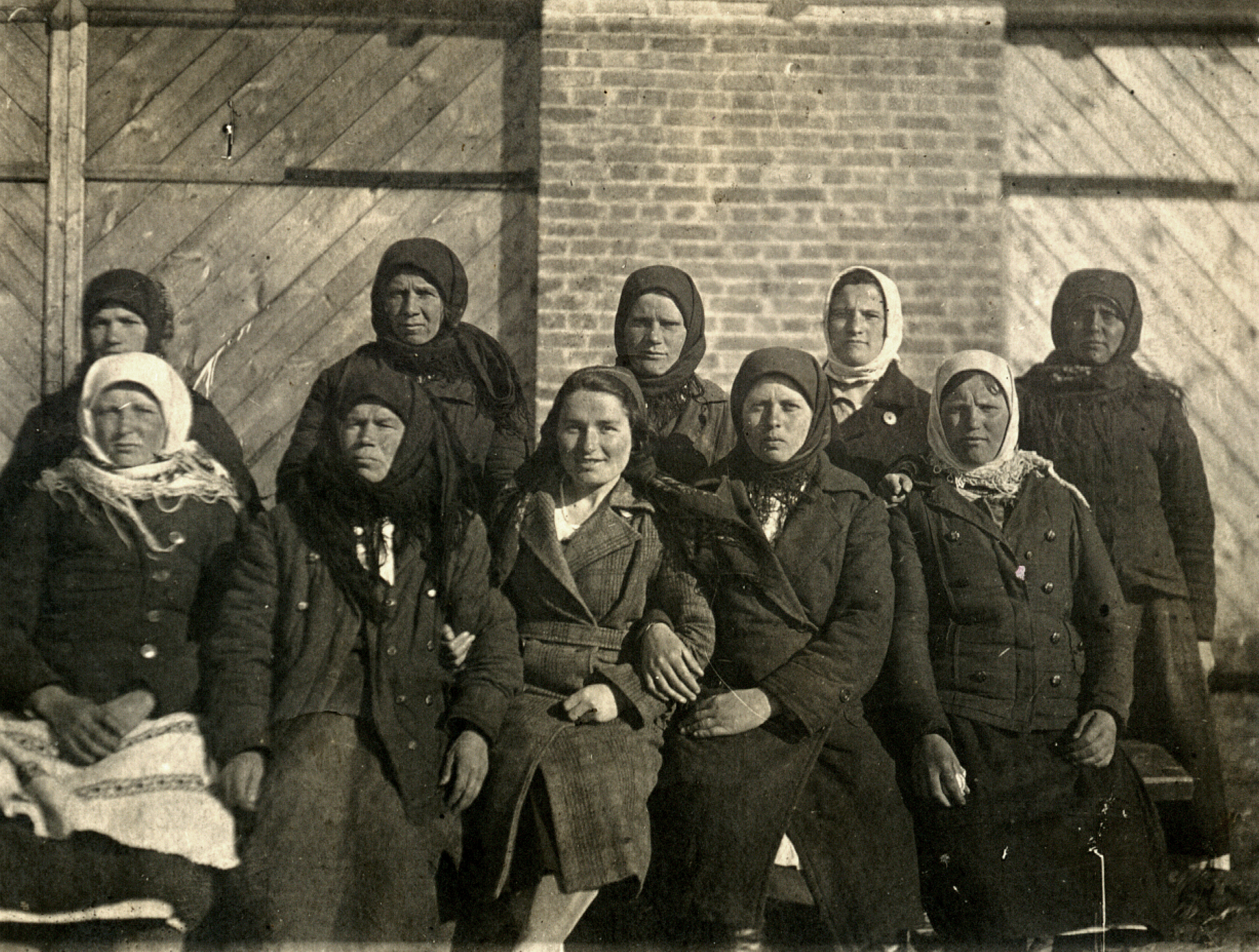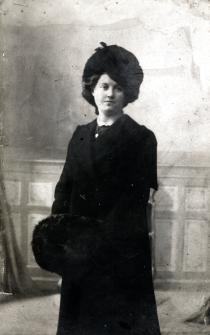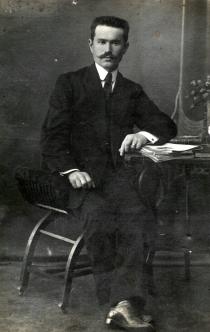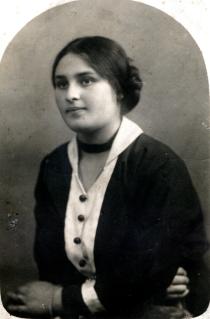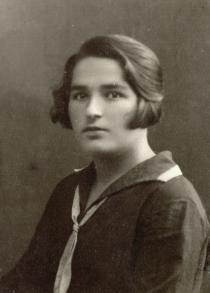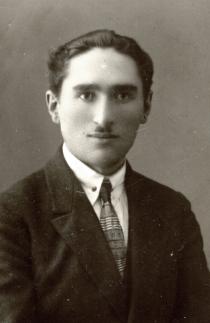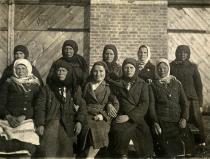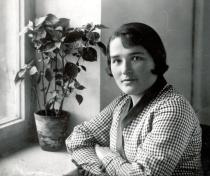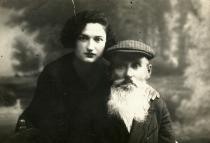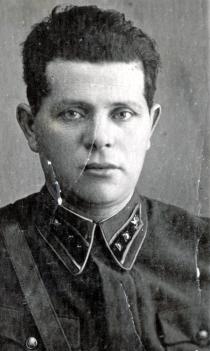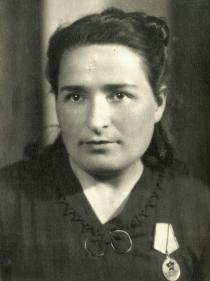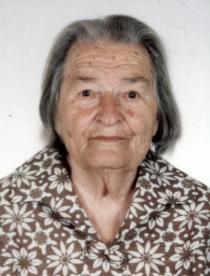This is a picture of me (third on the left sitting), with the best collective farmers of Oratovo village, Kiev region, in 1934. The photo was taken for the wallpaper at the collective farm.
I finished the Rabfak in 1931 and entered Kiev Polytechnic Institute. When I was still at the Rabfak I lived in the hostel until a friend of mine, Marusya, took me to live in her apartment. She was a very nice girl. She was arrested in 1937 [during the so-called Great Terror]. I don't know why she was arrested - nobody explained the reason for her arrest. Besides it wasn't a good idea to address authorities with questions about 'enemies of the people'. At that time many active Komsomol members and communists were arrested, but we believed that it was correct and that there could be no smoke without a fire. People disappeared for good.
I studied at the institute for a short time. In 1932 the Party made a decision to send 25,000 active communists to collective farms. We were to carry out the orders of the Central Committee of the Communist Party. We strongly believed that these decisions were correct and were committed to their implementation. This movement was named '25-thousandists'. I was sent to Oratovo village in Kiev region as the party leader of the collective farm.
There was an unbelievable famine in Ukraine in the village. I found carrots in the fields and that was my main food for a long time. At first the collective farmers didn't trust me, but it helped that I had grown up in a farming colony. I also took care of the people. When I received the order to give everything to the state including the last stocks of grain, we hid two kilos of wheat so that nobody could find it. We slaughtered all livestock because there was no food to keep them. Women were crying, 'We shall die, we shall all starve to death', but I tried to cheer them up and said, 'Hey, we shall live to bake pies'.
In spring we sowed the wheat that we had hidden and we did make pies after we harvested it. We also kept some milk to give it to the weakest and sick villagers. Of course I realized that it might cost me my life if someone reported on me, but what could I do? In other collective farms people were dying in hundreds, but in our village many survived. In 1934 our collective farm gradually began to come back to life. We organized an equipment yard and got the first tractors. I became head of the political department at the equipment maintenance yard. Nobody cared about my nationality, and I forgot about it, too. People cared about what kind of person I was and how I did my work. Nothing else mattered.
